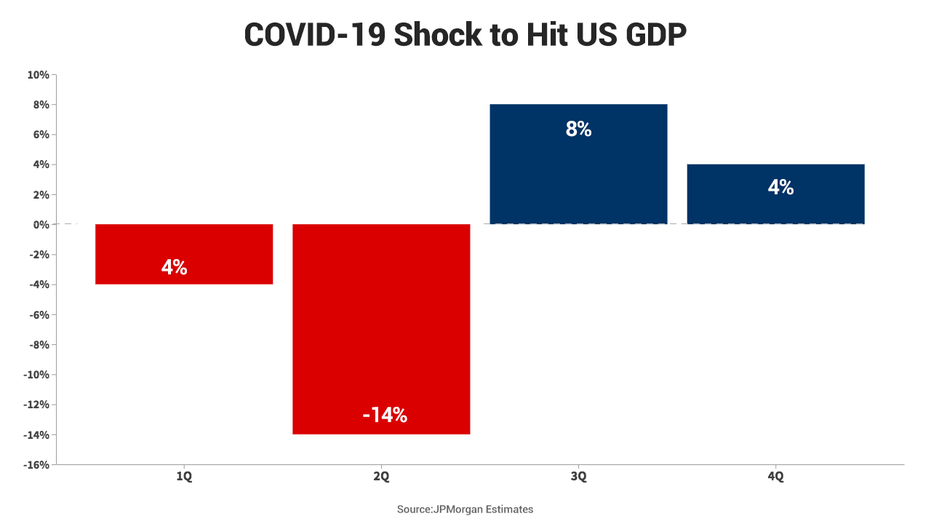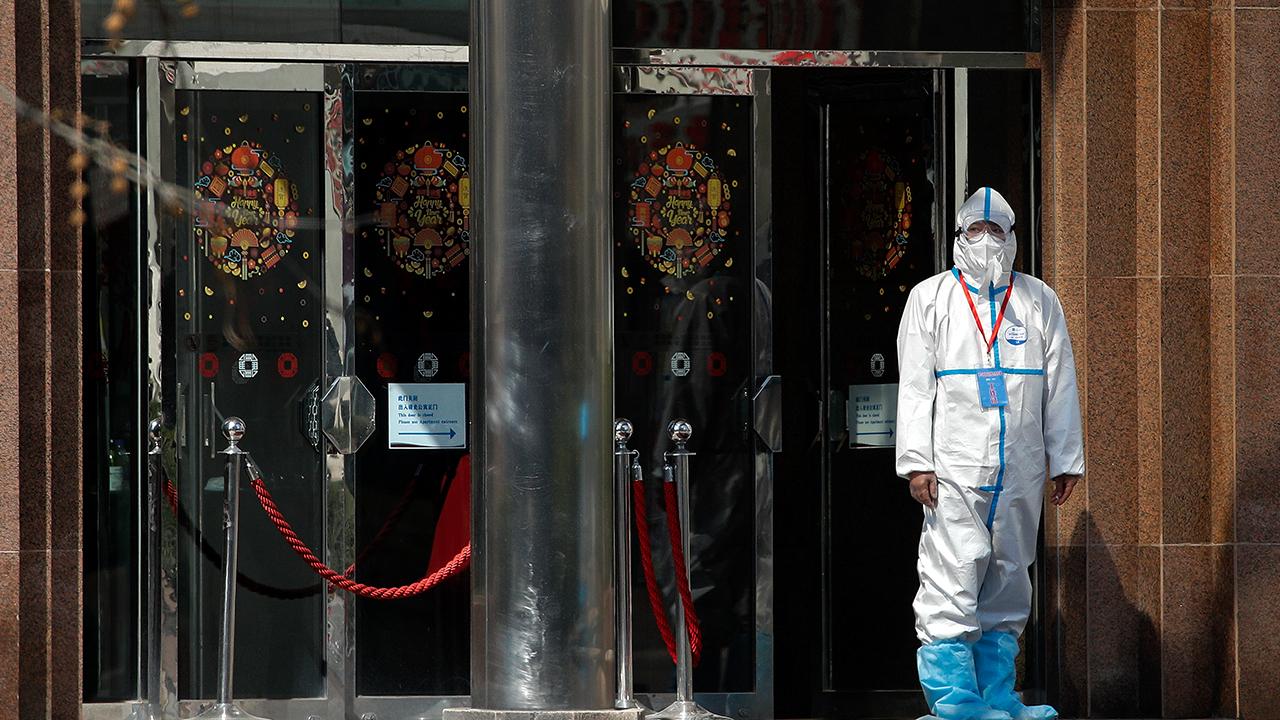Coronavirus will hit US economy harder than 2008 financial crisis: J.P. Morgan
The firm sees the US economy shrinking 14% in Q2
J.P. Morgan is calling for a sharper U.S. economic contraction in the second quarter, due to the COVID-19 pandemic, than the country experienced during the worst of the 2008 financial crisis.
The firm sees the U.S. economy shrinking by 5.3 percent from January through March and 14 percent during the following three months. By comparison, the U.S. economy contracted by 7.2 percent during the fourth quarter of 2008, its worst of the global financial crisis, according to the St. Louis Fed.
OIL PRICES COULD FALL BELOW ZERO: ANALYST
Still, a sharp snap back to 6 percent growth in the third quarter of this year and 2.3 percent in the fourth leaves the long-term outlook less dire than both the worst year of the financial crisis and the earliest years for which data is available on the Great Depression.

For all of 2020, J.P. Morgan sees an economic contraction of 1.9 percent, compared with a slump of 2.5 percent in 2009 and a drop of 8.5 percent in 1930, the year after the 1929 stock market crash, when the country was reeling from a drought and spiking unemployment.
The stall in economic activity in March will likely tip the U.S. economy into contraction this quarter, but “the shock’s impact is expected to be concentrated next quarter,” wrote Bruce Kasman, chief economist and head of global research at J.P. Morgan.
COVID-19 has infected 9,415 people in the U.S. and killed 150, according to the latest numbers provided by Johns Hopkins University & Medicine. The pandemic has caused the issuance of “shelter in place” orders, social distancing between people, the cancellation of non-essential travel and the closure of many restaurants and bars, paralyzing the economy.
“One of the consequences of the global financial crisis is that policymakers have experience in dealing with acute financial stress,” Kasman said. “As such, they are moving rapidly to attempt to ameliorate the threat to financial market functioning and are working to cushion the blow to corporates and households most impacted by the shock.”
The economic slowdown has caused the Federal Reserve to slash interest rates by a total of 150 basis points, in addition to launching a $700 billion asset purchase program and taking additional action to ensure the financial markets are functioning correctly.
Lawmakers in Washington passed a second coronavirus measure on Wednesday evening that provides paid sick leave, unemployment help and free testing to Americans. An earlier package provided $8.3 billion to give the health-care system money to deal with the influx of patients. The Trump administration is also said to be working with Congress on a $1 trillion stimulus package.
If activity normalizes from depressed levels midyear alongside building policy stimulus, “the depth of the current downturn can be seen as a springboard for a strong snapback in growth,” Kasman wrote. There is, however, a “significant risk that the virus outbreak persists and activity remains restricted for a longer time," he warned.
In that case, firms that had been struggling to survive before the pandemic “may not have sufficient equity to justify an even subsidized extension of credit and may close,” according to Kasman.
The longer economic activity remains depressed, “the deeper into the population of firms likely closures will occur, and the greater the feedback into consumer incomes and expectations,” he said.
While J.P. Morgan’s forecast is the most severe, the firm is not alone in calling for a sharp slowdown in the U.S.
Jan Hatzius, chief economist at Goldman Sachs, sees zero growth in the first quarter and a sharp contraction of 5 percent during the following three months before a return to growth of 3 percent and 4 percent in the third and fourth quarters of the year, respectively.
Bank of America's chief U.S. economist, Michelle Meyer, said Thursday that the U.S. has dropped into a recession along with the rest of the world and predicted the country's economy would shrink 12 percent in the three months through June after growing just 0.5 percent this quarter.
"Although the decline is severe, we believe it will be fairly short-lived," she added in a report.
"We expect the economy to return to growth in the third quarter," Meyer said, suggesting the U.S. would shrink just 0.8 percent in all of 2020.
In the meantime, "jobs will be lost, wealth will be destroyed and confidence depressed," she said. "The salvation will come if there is a targeted and aggressive policy response to offset the loss of economic activity and ensure a sound financial system."




















